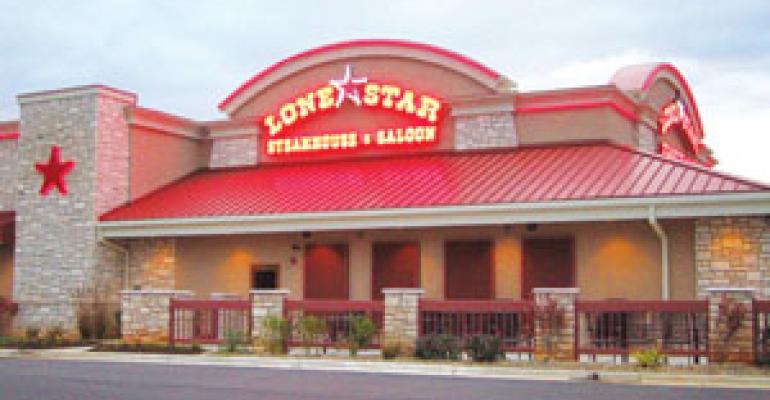With profit margins shrinking by the minute and loans more difficult to come by, more operators are garnering elusive capital for growth by selling their real estate assets and then leasing them back.
Last month, Lone Star Funds, the private-equity owner of 152 Lone Star Steakhouse & Saloon units and 31 Texas Land and Cattle restaurants, executed a $69 million sale-leaseback transaction on 35 properties with Sovereign Investment Co., an investment firm that specializes in real estate transactions. The funds were used to recapitalize Lone Star Funds’ 2006 buyout of Lone Star Steakhouse’s former parent company, Lone Star Steakhouse & Saloon Inc.
Sale-leaseback deals can be “a good way to unlock [property] value…so you can grow or use that capital for other purposes,” said Marc Buehler, chief executive of Lone Star Steakhouse, based in Plano, Texas.
When 22-unit Santa Fe Cattle Co. executed a sale-leaseback on eight of its 12 restaurants in 2006, the money helped fund the building of 10 new units in 2007, said Danny York, chairman of the Brentwood, Tenn.-based chain.
“I can take that money and open more stores, or I can use it to fund my operations,” York said. “We’re growing a lot right now.… There are a lot of costs associated with that.”
The tactic is relatively simple: A restaurant owner sells the building or the land assets to another party who leases the sold property back to the operator, typically for terms of 10, 15 or 20 years. The sale provides the operator with cash that can be used for opening new restaurants, funding current operations, paying down debt or even bankrolling retirement.
Restaurant operators seek sale-leaseback transactions as one alternative funding source, said Jeffrey Fleischer, senior vice president of Spirit Finance in Scottsdale, Ariz., especially as “the current contraction of liquidity…is probably more severe today than in any time we’ve seen since we’ve been doing this, since 1980.”
Spirit is a real estate investment trust that specializes in sale-leaseback financing in the restaurant and retail industries. Clients have included operators within the
Church’s Chicken, Pizza Hut and Burger King systems.
Restaurant companies of any size can execute sale-leasebacks, as long as there is sufficient equity in their properties, Fleischer said. “It’s less common among smaller operators who are not actively growing their businesses,” he said, but that there is an “active market” for deals on one or two assets.
While sale-leasebacks can provide an alternative source of capital in a tough environment, they are not risk-free, experts say. Taking all of the equity out of owned real estate may be unwise if a business can’t generate the cash flow to service rent on a multiyear lease. Given the current economic downturn, operators need to evaluate the sales leverage needed to pay typically escalating rents to decide whether a sale-leaseback transaction is the best way to obtain growth capital.
“All of a sudden you can be upside-down and in trouble,” Lone Star’s Buehler said. “You’ve got to be certain you can continue to perform as a concept so you can cover that rent.”





